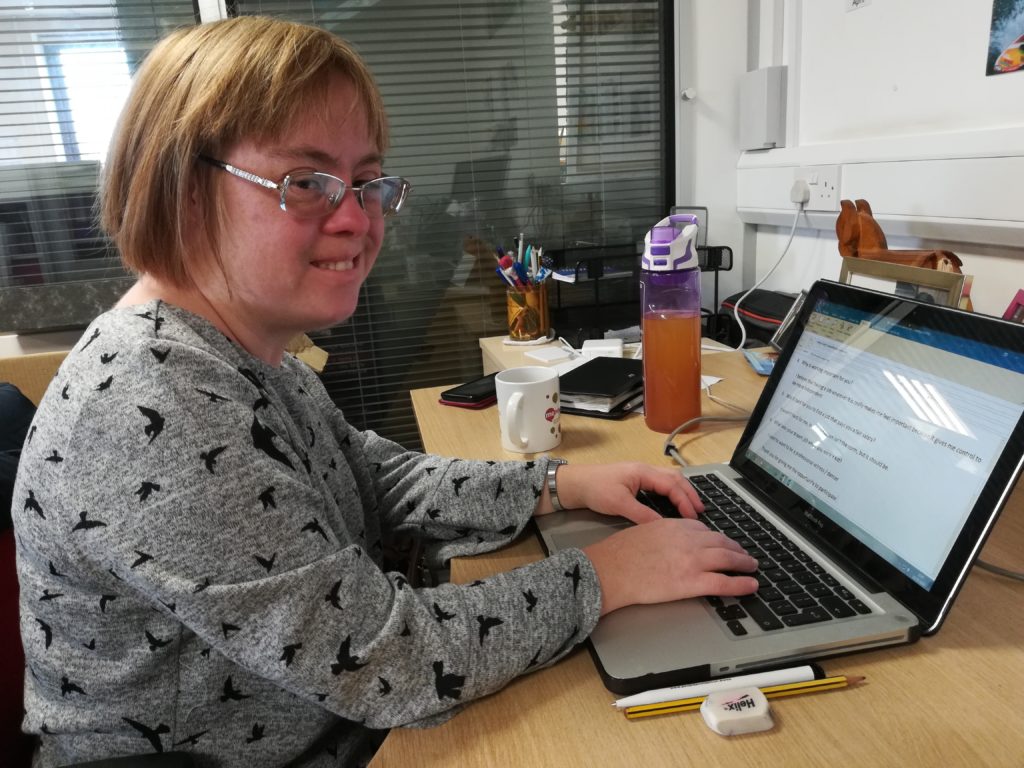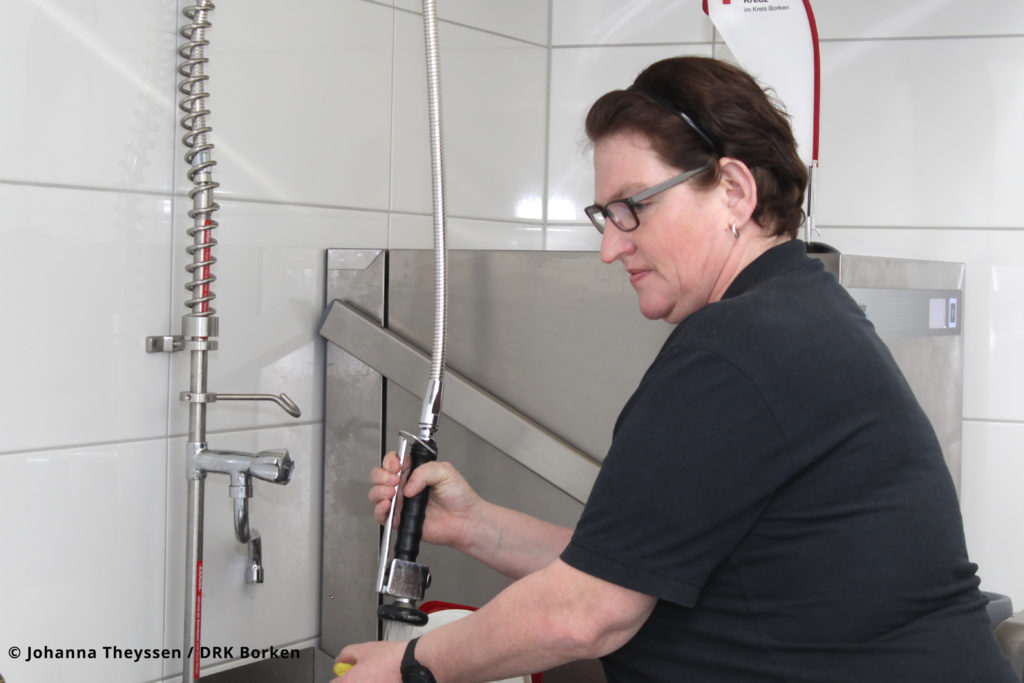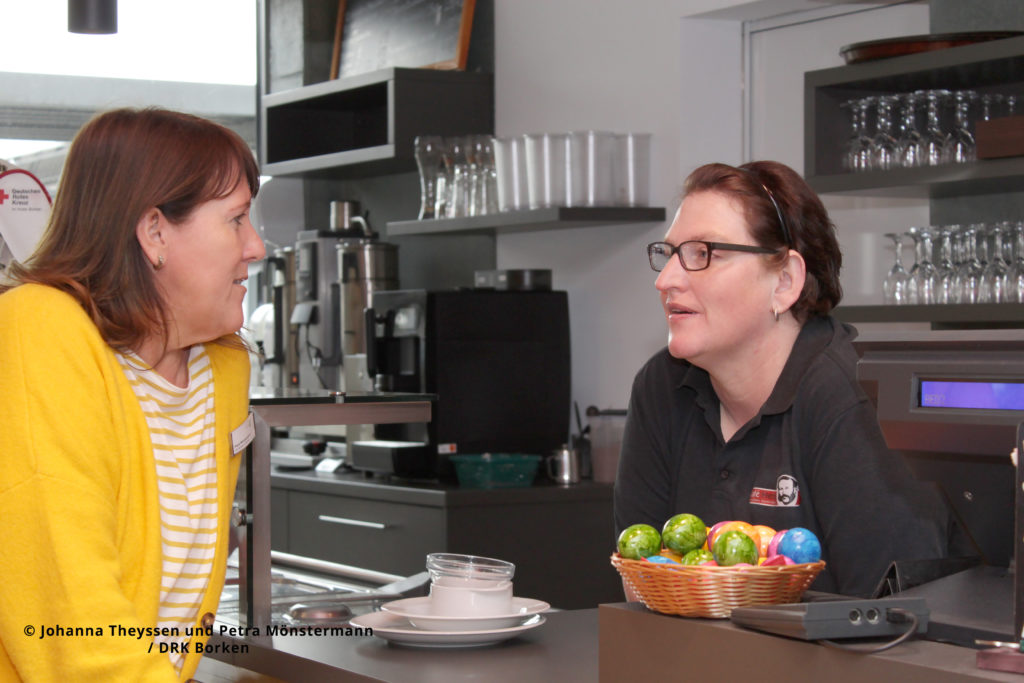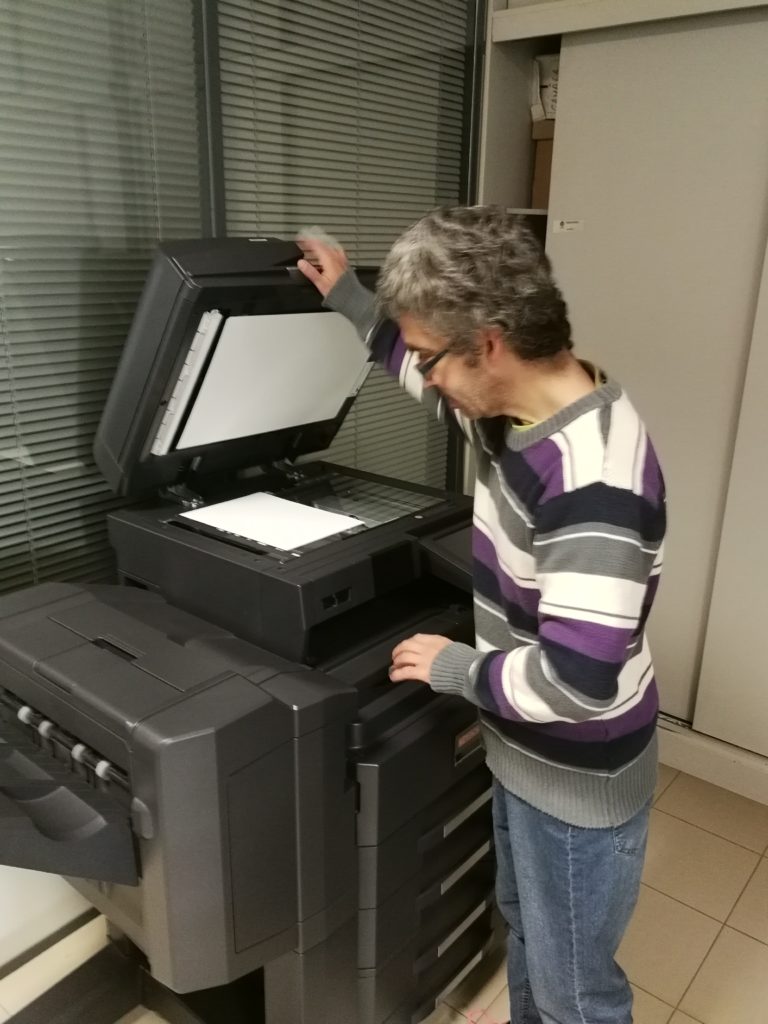On the 1st of May, Labour Day, we celebrate workers all over the world.
Having a job with a fair salary and being treated equally to their colleagues is something people with intellectual disabilities unfortunately cannot take for granted.
In some countries, they mostly work in workshops where they are segregated from society and get way less of what would be considered a minimum wage.
But there are people with intellectual disabilities who found the way to the primary job market! They are examples of inclusion: they do not work in a segregated environment, have responsibilities, a fair salary, and are treated the same way as everyone else.
We have reached out to some of these people to hear their stories. They are showing how people with intellectual disabilities are making valuable contributions in their jobs. Happy Labour Day!
What are you doing as part of your job?
As part of my job I get to represent Europe as a council member of Inclusion International which means that I get to travel to different places, speak at conferences, network with self-advocates and keep up to date with what is happening for self-advocates in and around Europe.
What do you like most about your job?
What I enjoy most about my job is public speaking, getting the chance to visit different countries, taking part in international meetings and getting opportunities to spread the word about self-advocacy.
Are there things you don’t like?
Last minute changes can be difficult to handle at times.
Why is working important for you?
I believe that having a job – whatever it is – really makes me feel important because it gives me control to be more independent
Was it hard for you to find a job that pays you a fair salary?
It wasn’t hard for me. My situation isn’t the norm, though, but it should be.
What was your dream job when you were a kid?
I used to want to be a professional actress or dancer.
What are you doing as part of your job?
I go to the banks, I take photocopies, I file documents, I write scraps, I check if the photocopiers have paper, I ask my colleagues what materials they need, I distribute the materials …
What do you like most about your job?
I like everything I do, but what I like best is to walk in the street to run errands.
Are there things you don’t like?
There’s nothing I do not like at all. But what I like the least is when I have to see some of the boxes that people send here, with “donations”. It’s often just rubbish … I do not like to handle that.
Why is working important for you?
I like it because it makes me feel that I have value. And also because I need the money. I do not think it’s good when we are dependent on subsidies.
Was it hard for you to find a job that pays you a fair salary?
No. I have been working here at FENACERCI for 29 years already.
What was your dream job when you were a kid?
I wanted to be a bus mechanic. When I was younger, I would spend the weekends in a workshop, to help.
But my parents thought it was not a good job.
What are you doing as part of your job?
I work at Café Henry. This is an inclusion company of the DRK Borken. Several people with disabilities work here.
My tasks are: Washing dishes, clearing and cleaning tables in the café, tidying up our conference rooms, helping with the distribution of food and also collecting money.
What do you like most about your job?
 I like working in the customer service cafe. I like most having contact with customers. Being approached, talking to them seeing that they like coming to the café. They tell me that that everything tastes very good!
I like working in the customer service cafe. I like most having contact with customers. Being approached, talking to them seeing that they like coming to the café. They tell me that that everything tastes very good!
Are there things you do not like?
I do not like to clean the large warming containers from the buffet. They are big and not easy to clean. It is hard work.
Why is working important for you?
At the WfbM (workshop for handicapped people) where I was working before, I felt I was not challenged enough. I just wanted to go to work and earn my own money. Here I belong, my colleagues all know me and I am right in the middle of it. I have many more personal contacts here.
Was it difficult for you to find a job that would pay you a fair salary?
Yes. Very difficult. Before I went to the WfbM I had several unskilled jobs. However, it never worked out for very long. Afterwards, I thought I must always work at the WfbM. I was happy when the integration service asked me if I wanted to try out the café. And it worked! I’ve been working at Café Henry for 7 years now.
What was your dream job when you were a kid?
I wanted to drive a truck or become a farmer. My dad drove trucks and it was great to sit next to him and be on the road. However, unfortunately I do not have a driver’s license.
My grandparents had a farm where I could have worked with animals. Today I am glad that I did not work out that way because I would have to work every day!
Petra Mönstermann works in the Integration Service (IFD) Borken-Coesfeld, commissioned by the LWL-Inklusionsamt in Münster. She is in charge of supporting people with intellectual disabilities in finding a job in the primary job market. She has supported Petra Philipsen in finding a job.
We talked to Petra Mönstermann to learn more about the work she does and the situation in the region of Nordrhein-Westfalen in Germany.
What exactly is your job and how did you get it?
There are different areas of responsibility at the IFD. I am responsible for the transition between WfbMs (Werkstätten für behinderte Menschen, sheltered workshops for people with disabilities) and the general labour market. I advise people who work in a workshop and are looking for a job on the primary job market. Many things become different when they take this step. The income situation changes, the demands on resilience and stamina increase, so there is a lot to consider. The employers also have many questions. As a preparation, internships are being organised, so both sides have time to find out whether the collaboration would work. During this period of time, the potential future employee may also be able to switch tasks or improve work processes. I advise the employer about financial and individual support options they can make use of. I also write reports, e.g. about which financial benefits the employer may receive.
If the person with a disability is indeed employed, I accompany the probation period, thus the first half year. If further support is necessary, this is being handed over to our specialist department for securing employment relationships. They accompany the employee as well as the employer as long as needed.
Who “chooses” the people with intellectual disabilities who you will support in entering the primary job market? What are the proceedings?
We work closely with the workshops that prepare and qualify people in their facilities for the general labour market. This collaboration has only developed and intensified during the last 10 years. The integration assistant of the respective workshop approaches us and introduces us to our new clients.
In addition, any interested person with a disability can contact us for an initial interview. Together we try to find out what is the next step to find a possibility on the job market. Maybe someone has to get a qualification. Or there are other things like debts or a difficult private situation that need to be sorted out before the next step is possible.
One German TV documentary mentions that less than 1% of people working in the workshops make it to the primary job market. What makes it so challenging?
This number refers to all sheltered workshops in Germany in general. However, there are big regional differences.
As I said, we have only been working together with the workshops for about 10 years in order to increase that number. Previously it was only few people who made it and the process was very difficult.
Now our work already begins before, at the schools for children with special needs, and continues in the workshops. The topic “job market” is always on the agenda, and people with intellectual disabilities receive tailored support. Programmes to promote this way of proceeding have been launched by the Labour Inclusion Office. This also means that there is money available to put ideas into practice.
For example, a driver’s license or job coaching can be paid for with money from the work budget.
At the regional Labour Inclusion office, we have a 3-4% rate – with a yearly increase – of bringing people with intellectual disabilities who were working at the workshops into paid jobs on the primary job market.
The number of people sent to work in the workshops has risen sharply in Germany. Why do you think this is happening?
We can observe an increase in the number of people with mental illnesses who are employed at workshops. This is the group which is responsible for the high increase. There is certainly also a connection with the increased demands and pressure to perform on the primary job market.
I cannot confirm that numbers are rising for people with intellectual disabilities, at least not in our region. We also have a very low total unemployment rate and are increasingly being approached directly by employers who are prepared to hire people with disabilities.






